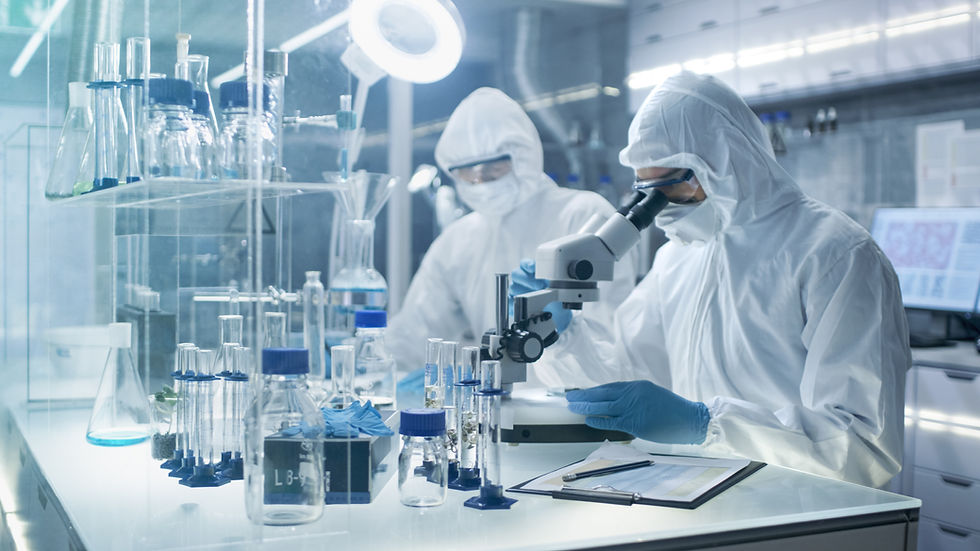International Decade of Sciences for Sustainable Development
- elspethwadsworth
- Jan 4, 2024
- 3 min read
In December we came to the end of the International Year of Basic Sciences for Sustainable Development. However, we have sprung straight into the International Decade of Sciences for Sustainable Development (IDSSD). The Decade aims to highlight and harness all the sciences; basic, applied, social and human, to bring about transformative change. It recognises the need for sustainable development across society, economy and the environment. It comes as we hit half way on the journey to reach the United Nations 17 Sustainable Development Goals.
“Sustainability is no longer an aspiration; it has become an imperative.”
President of the UN General Assembly, Csaba Kőrösi.
The decade will be about collaboration across the sciences, making progress on all 17 goals through interdisciplinary research and projects. Sustainable development and the SDGs aim to tackle all aspects of life on earth from the climate emergency and poverty to biodiversity loss and global health. Now more than ever, humans need to learn to coexist with the planet.

In 2023 the International Science Council released their ‘Flipping the Science Model: A roadmap to science missions for sustainability’. This summary report outlines how science can help tackle to 2030 SDG agenda and speed up the efficacy of processes. They call for a change in support systems and further integration across natural and social sciences.
There are 10 key messages from the report:
1. There needs to be a change in the way we fund and commission science for the SDGs.
2. We need to encourage science to cater directly to societal needs and be more trusting across projects and deliveries. “The commission advocates for the co-design of research and action to be the standard practice in sustainability science.”
3. Sustainability science must embrace new theories, practices, technologies and methods. This will require investment across all sciences, with a focus on practical outcomes.
4. Now is the time to invest large scale in human infrastructure for sustainability science. Increasing the global collective investment by just a billion dollars a year would significantly accelerate progress toward the 2030 agenda.
5. The commission calls for change in how funders interact with the science sector, as well as society.
6. “The Commission invites UN organizations, as well as national and philanthropic funders, to support and mainstream mission and transdisciplinary science as an ambitious but pragmatic framework for action to accelerate collective efforts in implementing the 2030 Agenda.”
7. There needs to be an update in processes in member states, to enable rapid uptake of actionable knowledge and policy change.
8. To support the required shift, the commission recommends new forms of doing science to provide context-specific solutions to sustainability challenges, at the local and global scales.
9. Urgent support of pilot projects is needed, in order to demonstrate the validity and effectiveness of this new paradigm for global science.
10. The recommendations should be seen as evolutionary, responding to the critical need for a new modality of producing actionable knowledge.
Moving from ‘What’ to ‘How’
Over recent decades science has excelled in identifying and defining the most pressing sustainability challenges. We now understand more than ever about what is causing the problems we see and what the results of these problems are. Now we need to shift into an era of ‘how’. We now need to leverage all the knowledge we have to find new ways of doing things. Without new approaches and change it is highly unlikely that we will achieve the 2030 agenda.

One way of bringing about the scale of change will be to implement a global connected science community. We need to move away form the compartmentalised and fragmented system we have now, and combine our knowledge and resources to not only speed up the dissemination of ideas and learnings but to ensure that the science community is deeply connected with societies most pressing needs. As Flipping the Science states “Sustainability must be articulated not by any specific sector or endeavour on it’s own, but by being mainstreamed and integrated in all aspects of the human enterprise.”
Where does Change Agents fit into the Decade?
As sustainability recruiters and educators, we are always looking for new and innovative ways to broaden peoples knowledge. It is our mission to bring an understanding of sustainability to as many people as possible, not just from the green sector but from all walks of life and business. As part of our outreach to non-traditional green employees we have recently added a course for HR professionals, and will shortly be launching another for Trustees. We continually update and adapt our training, so even our most popular courses are changed regularly. We look forward to seeing what changes occur over the next 10 years and will of course be glad to partner with projects and events throughout the UK.
.png)





